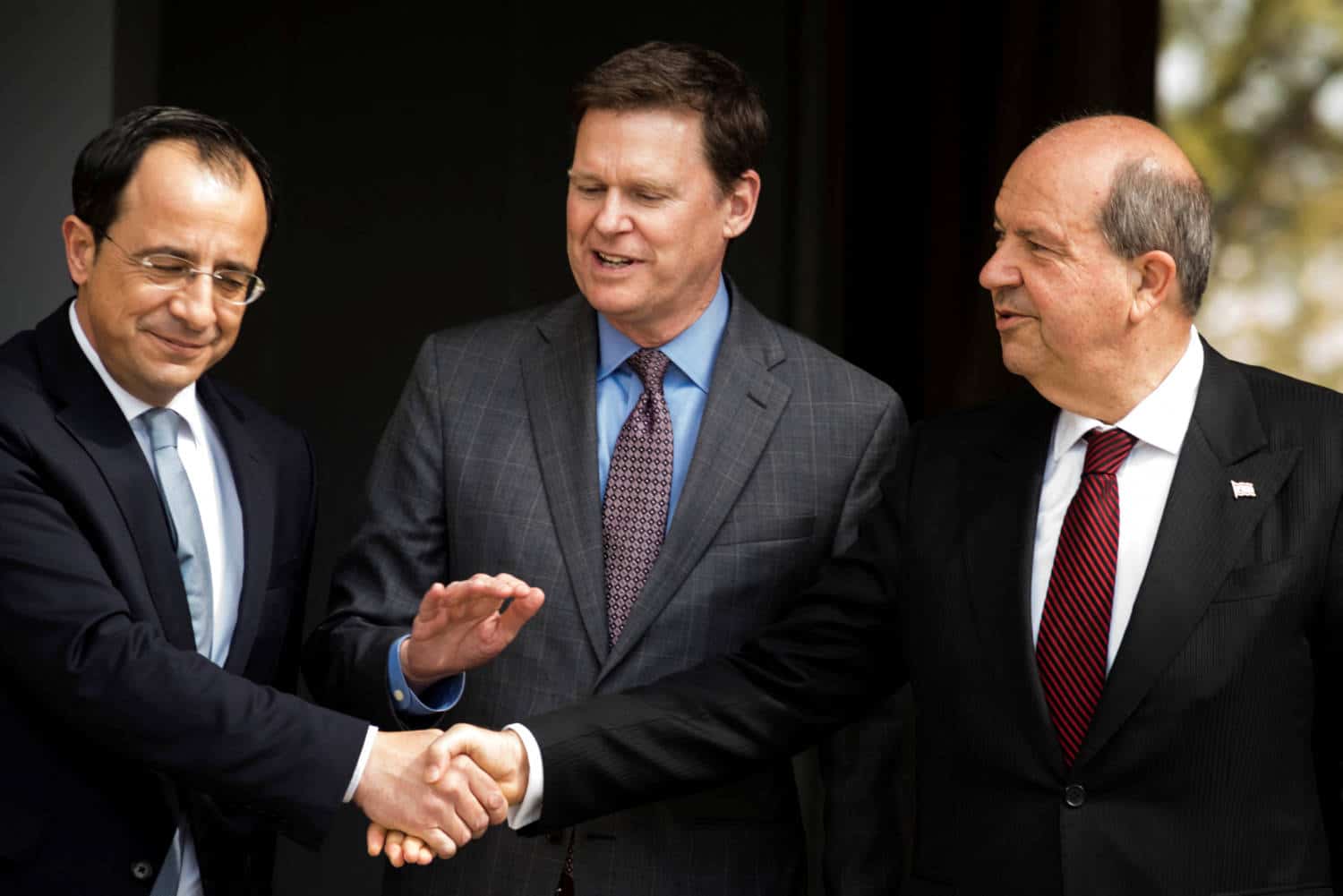But the Turkish side needs to be persuaded that although the RoC and Greece are EU members and Turkey and the ‘TRNC’ are outsiders, the EU is not institutionally biased
President Nikos Christodoulides wants a more active involvement by the EU in the Cyprob, which is good mediation in disputes between member states, but needs justification in disputes between member states and third countries or other entities.
Presumably what Christodoulides is hoping for from his perspective is the extra leverage the EU can bring to bear on Turkey to kickstart talks abandoned at Crans-Montana in 2017. On the other hand, figuratively speaking, the EU knows exactly where the bodies are buried in Burgenstock in 2003 and in Crans-Montana.
The case for a more active EU involvement will have to be addressed at some point anyway whatever the basis of negotiations. At present the Turkish side is only prepared for talks to take place on an equal footing. In other words, provided a two-state solution is on the table. The rationale behind this stance is that the RoC is not really interested in power sharing under a bicommunal, bizonal federation and another round of talks exclusively on that basis is doomed to fail from the outset unless there is a two-state twist at the end. Two-states, however, is anathema to most Greek Cypriots. How then can the EU make any difference?
The answer is that far from being unfair to the Turkish side, the active involvement of the EU is essential if what is envisaged is two states within the EU. The Turkish side would then have an opportunity at the outset to put forward its ideas on how its two-state framework could be squeezed into the single-state membership of the EU.
As Scotland found out during the 2014 independence referendum campaign, breakaway states must reapply for EU membership and go at the back of the queue. If on the other hand the Turkish side is prepared to dilute the two-state formula vis-a-vis the EU, it would be fascinating to know the extent to which the EU would be prepared to stretch the current single state requirement into which any settlement must fit.
That, however, can best take place by an early active involvement of the EU, which would be as much about itself as a conglomerate of diverse systems as about Cyprus. The legal position is governed by protocol 10 attached to Cyprus’ accession to the EU that suspends the European legal order in northern Cyprus with no end date, but with a provision for the suspension to be lifted in the event of a comprehensive settlement.
So far as the involvement of the EU in achieving a settlement is concerned, protocol 10 affirms in its preamble a commitment by the EU to a comprehensive settlement consistent with the UN resolutions on Cyprus and strong support of the UN secretary-general’s efforts.
So, an EU booster for the UN secretary-general’s efforts would be in line with the strong support protocol 10 envisages – not as a rival but a complimentary mechanism to that of the secretary-general. The UN has been mediating unsuccessfully in Cyprus since 1964, not through any fault of its own, but because the problem is intractable and after so many years of failure is in grave need of fresh ideas and a new dimension – an EU dimension.
The problem is that the Turkish side needs to be persuaded that despite the fact the RoC and Greece are EU member states and Turkey and the ‘TRNC’ outsiders, the EU is not institutionally biased.
The origin of the perception of EU institutional bias derives primarily from events in 2004 when the Turkish Cypriots voted in favour of a UN-EU plan and got little in return, which is true but not evidence of EU bias against the Turkish Cypriot community. The truth is that the RoC had applied for membership and was admitted with its problem unresolved, because it was not a condition of membership that it had to solve the Cyprob, but rather that there would be simultaneous referendums on a UN-EU plan. There were two referendums, and the Greek Cypriot people rejected the plan and Cyprus joined because that was part of the deal. It was not a reward for rejecting the UN-EU plan and neither was the Turkish Cypriot community penalised for voting for the plan – peddled sometimes to besmirch the EU’s credentials.
It is just that if you agree to hold referendums you agree to abide by the result, and although the government of RoC failed to support the UN-EU plan as it promised, the Greek Cypriot people rejected it by a wide margin.
What happened afterwards was that the European legal order had to be suspended in northern Cyprus because it was not under the effective control of the government of Cyprus as it had to be. The EU needs governments of member states to enforce its legal order as it has no federal agencies of its own in union countries. The EU could not use the “TRNC” administration because it was not a recognised government internationally and had not satisfied the membership criteria independently of the RoC. The EU was not biased then and its benevolent involvement now would be a mild step forward.
Alper Ali Riza is a king’s counsel in the UK and a retired part time judge







Click here to change your cookie preferences